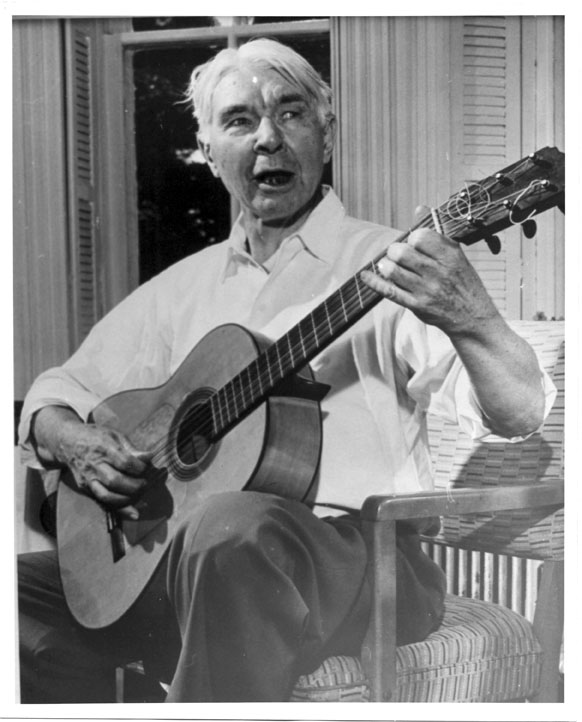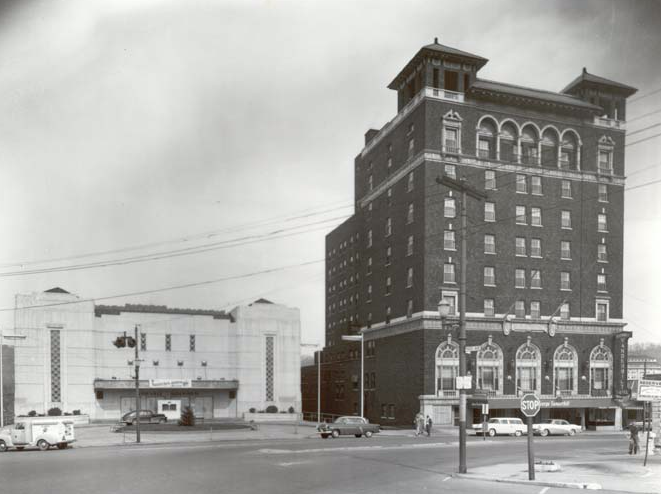“Proponents of world government will come here from all parts of the United States next month to attend the first national congress of organizations and leaders interested in the movement,” declared the Sunday, Jan. 12, 1947, edition of the Asheville Citizen-Times.
The group, eventually known as the United World Federalists, was set to converge on Asheville in late February for a three-day conference held in multiple downtown venues. Locations included the Asheville City Auditorium, the Battery Park Hotel and the George Vanderbilt Hotel. At the time of the announcement, the paper noted, polls showed more than 50% of Americans favored “some form of international plan of government.”
A few days before the gathering’s official launch, R. Mayne Albright, executive director of the World Federalists of North Carolina, spoke at a Lions Club luncheon at the George Vanderbilt Hotel. The Asheville Citizen reported on the meeting in its Feb. 20, 1947, edition:
“With the memories of World War II still in our minds, and with the assurance that the atomic and biological warfare of the future would destroy nations, aggressors or not, Mr. Albright pointed to the position of the United States. ‘The United States stands in unprecedented prosperity and power in the midst of a hungry, war-wrecked and lawless world. As never before, the future not only of ourselves, but of the world, depends upon the choice we now make,’ Mr. Albright said.”
According to the article, Albright further stressed “that we now live in one world, and that we cannot return to the old isolation.”
On Feb. 21, 1947, the national conference commenced. “The eyes of the world’s top-flight thinkers are centered on Asheville today,” The Asheville Citizen declared. “[Residents] will have the opportunity of sitting in on a history-making session tonight when some of the best thinkers in the country attempt to find a basis for unity which may spearhead the march toward some kind of workable world control.”
The following day’s paper recapped the evening’s session. According to the article, “a crowd of approximately 1,000 persons braved the blasts of a near blizzard” to hear University of North Carolina President Dr. Frank P. Graham, writer Carl Sandburg, former Marine combat correspondent Cord Meyer Jr., poet Mark Van Doren and The Saturday Review of Literature editor Norman Cousins speak.
Sandburg’s appearance, the paper wrote, “pleased the crowd immensely.” The writer spoke on the importance of human relations, “painting effectively the story of mankind stalked by fear of the unknown.” Following his talk, Sandburg performed two spirituals on the guitar.
In Graham’s address, the university president declared: “Idealism does not cringe before force. Repression is the way of frightened power. Freedom is the way of enlightened faith.”

Meanwhile, Van Doren called for a world of brotherly love, void of class distinction and replete with “a world system of education … [creating] two billion philosophers.”
Cousins’ speech focused on the lasting impact and continued threat of nuclear war. “There is no defense against the atomic bomb,” he declared. “But we must remember that peace cannot be achieved on a basis of mutual terror.”
The World Federalists movement, Cousins later proclaimed, had three principles: to strengthen the United Nations, establish compulsory jurisdiction and grant the United Nations access to limited areas in the quest for ongoing peace.
The theme of the evening, the paper wrote, “was one of urgency, the pressure of a bleak and terrible urgency[.]”
The three-day conference resulted in a merger of five existing world government groups: Americans United for World Government; World Federalists, U.S.A.; Student Federalists; Georgia World Citizens Committee; and the Massachusetts Committee for World Federation. Together these groups formed the United World Federalists.
On March 26, 1947, a month after the conference, The Asheville Citizen reported on the merging of three additional world government groups. The Asheville United Nations committee, the local chapter of the World Federalists of North Carolina and members of Americans United for World Government joined forces to form the United World Federalists, Asheville chapter.
William C. Cocke was named chairman of the group. He offered a statement of policy, which was featured in that day’s paper. Within it, Cocke declared:
“We believe that peace is not merely the absence of war, but the presence of justice, of law, of order — in short, of government and the institutions of government; that world peace can be created and maintained only under world law, universal and strong enough to prevent armed conflict between nations.”
In the 1960s, the United World Federalists became World Federalists, USA. It changed names again in the 1970s, becoming World Federalists Association. Its headquarters are in New York.
Editor’s note: Peculiarities of spelling and punctuation are preserved from the original documents.



Before you comment
The comments section is here to provide a platform for civil dialogue on the issues we face together as a local community. Xpress is committed to offering this platform for all voices, but when the tone of the discussion gets nasty or strays off topic, we believe many people choose not to participate. Xpress editors are determined to moderate comments to ensure a constructive interchange is maintained. All comments judged not to be in keeping with the spirit of civil discourse will be removed and repeat violators will be banned. See here for our terms of service. Thank you for being part of this effort to promote respectful discussion.